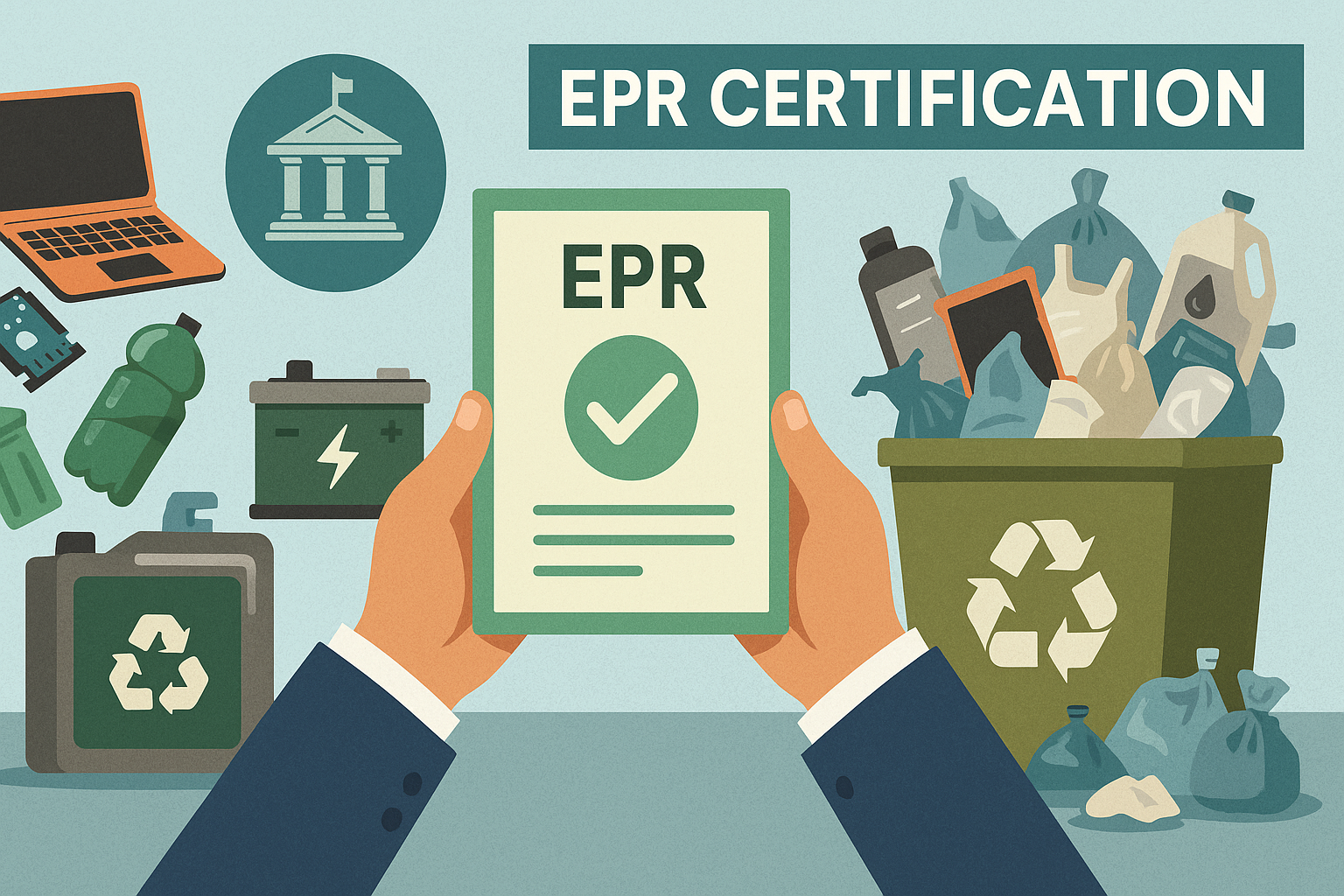As environmental awareness gains momentum across India, industries are under increasing pressure to manage the lifecycle of the products they introduce into the market. From electronics and plastics to packaging and batteries, post-consumer waste poses a major threat to environmental health. This challenge, however, presents an opportunity for businesses to lead by example through Extended Producer Responsibility (EPR). By obtaining EPR registration, companies not only fulfill legal obligations but also contribute to a cleaner, more sustainable future.
What is EPR Authorization and Why It Matters
EPR authorization is a mandatory compliance requirement introduced by the Ministry of Environment, Forest and Climate Change (MoEF&CC) under the Plastic Waste and E-Waste Management Rules. It mandates producers, importers, and brand owners (PIBOs) to manage the collection and recycling of post-consumer waste generated from their products. Whether it’s plastic packaging, used batteries, or electronic devices, EPR ensures that the environmental impact of a product is accounted for throughout its lifecycle.
With proper EPR certification, companies take responsibility for setting up reverse logistics, partnering with recyclers, and submitting reports to regulatory authorities. This systematic approach not only helps control pollution and waste accumulation but also promotes circularity in the economy by encouraging reuse and recycling.
Pathway to Compliance: Understanding the Process
The first step toward compliance is securing EPR registration from the Central Pollution Control Board (CPCB) or the respective State Pollution Control Board (SPCB), depending on the waste category and scale of operations. The application process involves submitting detailed plans outlining waste collection mechanisms, partnerships with authorized recyclers, recycling targets, and awareness initiatives.
Companies must also submit proof of collection infrastructure, agreements with waste management agencies, and periodic returns demonstrating compliance. The process is now streamlined through online portals, allowing businesses to complete applications, upload documents, and track approvals with greater transparency.
Strategic Benefits of EPR Certification
Beyond compliance, EPR certification offers strategic benefits for businesses. It builds credibility with environmentally conscious consumers and investors. It also opens access to government tenders, sustainability-linked funding, and international markets with stringent environmental norms. More importantly, it reduces a company’s environmental footprint by ensuring products are disposed of responsibly.
EPR also fosters innovation in packaging design and material use, as businesses look for sustainable alternatives that reduce their collection burden. This encourages the shift toward biodegradable and recyclable materials, aligning product design with environmental objectives.
Future-Ready Businesses Choose Compliance
As environmental regulations tighten and sustainability becomes a core business value, EPR certification is no longer optional it’s a strategic necessity. Companies that proactively pursue EPR registration position themselves ahead of the curve, both legally and reputationally. Early compliance ensures smoother audits, uninterrupted operations, and a strong foundation for future environmental initiatives.
Whether you’re a startup introducing a new product or an established enterprise expanding operations, EPR authorization is key to responsible growth. With the right guidance and support, navigating the EPR process becomes a straightforward step toward sustainability leadership.
